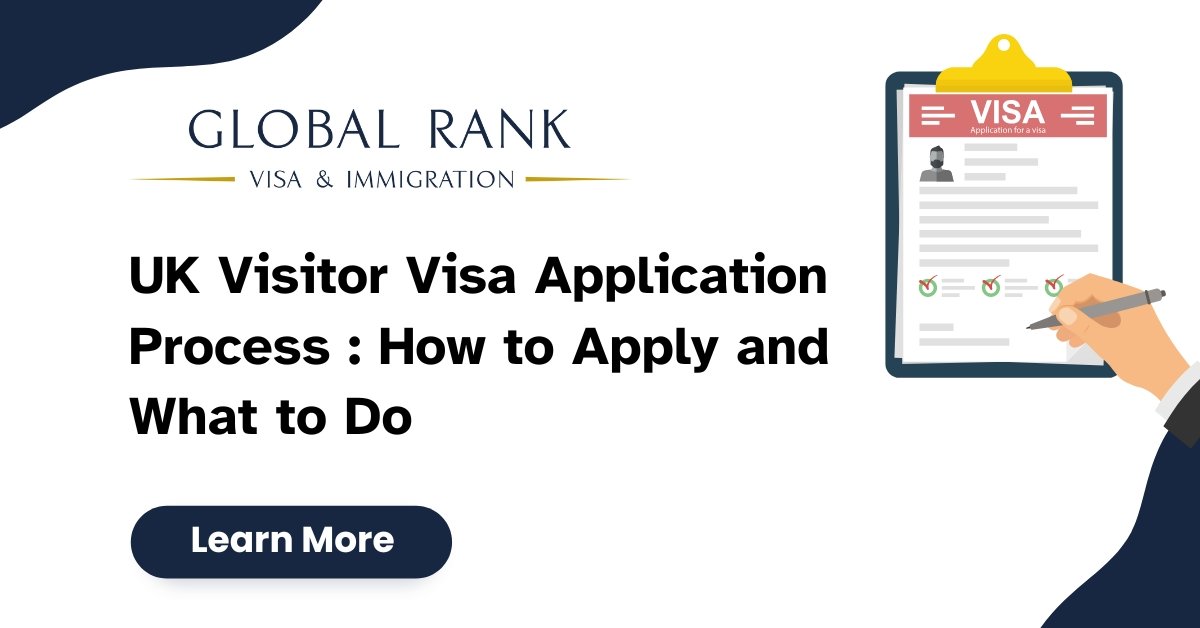
The UK Visitor Visa allows travelers to visit the United Kingdom for tourism, business, or family visits. While the application process is straightforward, many applicants face challenges such as visa refusals due to documentation or eligibility issues. Understanding the process, common reasons for rejection, and ways to strengthen your application can significantly improve your chances of success.
This article provides a detailed guide to the UK visitor visa application process, including steps to reapply after a refusal, reasons for rejections, and the importance of financial documentation. If you need personalized advice, consider booking a free consultation with us to ensure your application meets all requirements.
Receiving a refusal can be disheartening, but it doesn’t mean you’ve reached the end of the road. You can reapply for a UK visitor visa after addressing the reasons for the rejection. Follow these steps to strengthen your reapplication:
The refusal letter from the Home Office will explain why your visa was denied. Common reasons include:
Analyze the refusal notice carefully and make a checklist of issues to address in your new application.
The refusal letter from the Home Office will explain why your visa was denied. Common reasons include:
Analyze the refusal notice carefully and make a checklist of issues to address in your new application.
Ensure you submit updated and accurate documents in your reapplication. Key documents to include are:
Include a cover letter explaining how you’ve addressed the reasons for your previous refusal. Be transparent about your intentions for the visit and provide additional supporting evidence to strengthen your case.
Once you’ve resolved the issues highlighted in your refusal letter, reapply with confidence. Pay close attention to every detail, ensuring your application form is completed accurately and all supporting documents are included.
If you are navigating the UK immigration process for the first time, professional guidance can help you avoid common pitfalls.
Understanding why applications are often refused can help you avoid mistakes. Below are the top reasons for UK visitor visa refusals:
One of the main reasons for visa rejections is failing to prove financial stability. The Home Office requires applicants to demonstrate they can cover their expenses during their stay in the UK. Financial evidence includes:
To prevent misuse of visitor visas, UK authorities require proof that you intend to return to your home country after your trip. This can be demonstrated by:
Submitting incomplete or inconsistent documents is a common mistake. For example:
For long-term travel plans, explore our guide on the Long-Term UK Visitor Visa for options that allow multiple entries over five or ten years.
Bank statements are among the most critical documents in a UK visitor visa application. Here’s why they matter:
Your bank statements demonstrate your ability to cover expenses during your trip. You must show:
For example, if your trip costs are estimated at £3,000, your bank statement should reflect a balance significantly higher than this amount.
Large or irregular deposits without a clear source may lead to questions about the legitimacy of your funds. Always provide an explanation for significant deposits, such as a bonus or property sale.
The Home Office evaluates whether you genuinely own or have unrestricted access to the funds in your bank account. Avoid submitting bank statements from accounts under another person’s name unless you can provide documentation proving shared ownership or sponsorship.
For tips on managing financial documentation for other visas, such as the Canada Visit Visa, explore our resources.
Here are practical tips to improve your chances of getting a UK visitor visa approved:
Yes, you can reapply after a refusal. Address the reasons stated in the refusal letter, provide updated documents, and ensure your new application resolves any issues.
Bank statements are crucial for proving financial stability. They show your ability to cover travel expenses and provide evidence of legitimate income sources.
Your cover letter should explain the purpose of your visit, address any previous refusals, and highlight supporting evidence that proves your eligibility.
The standard processing time for a UK visitor visa is approximately three weeks, but it may vary depending on your location and the time of year.
Applying for a UK visitor visa can be challenging, but understanding the process and avoiding common mistakes can improve your chances of success. For tailored guidance and professional support, book a free consultation with us today.
+971 58 699 2377
+447 71 5382631
info@global-rank.com
180 London Road, Romford,England. RM7 9EU
☎️ +44 (0) 2034893448
Office 301, Business Village Block B, Clock Tower Dubai
☎️ +971 58 699 2377
WhatsApp us